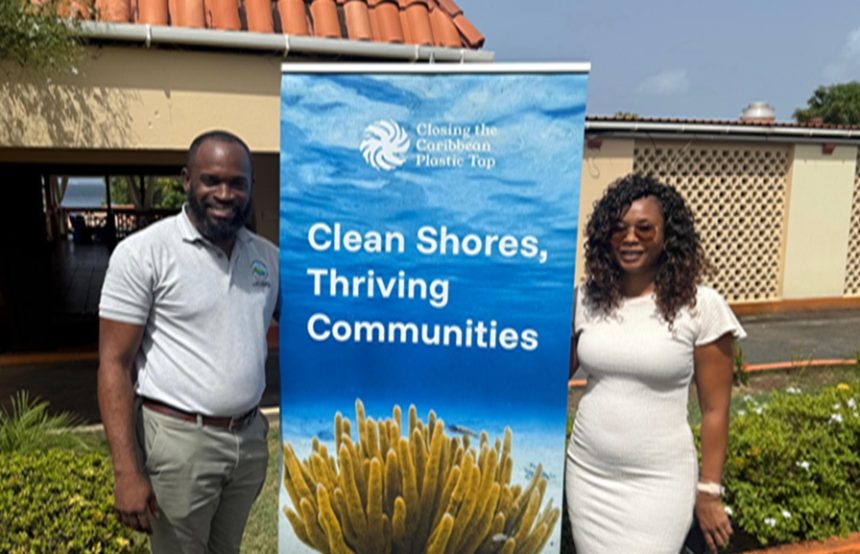SVG ADDRESSES PLASTIC POLLUTION THROUGH NATIONAL INITIATIVE
Saint Vincent and the Grenadines has concluded a comprehensive three-day workshop to address plastic pollution through the 1-day National Inception Workshop and 2-day “Alternative Value Chains (AVC) for Plastic Waste Circular Sprint Workshop held for the “Closing the Caribbean Plastic Tap” project. The Ministry of Tourism, Civil Aviation, Sustainable Development and Culture, in partnership with the International Union for Conservation of Nature (IUCN) – ORMACC and the Italian Agency for Development Cooperation (AICS), hosted the workshop at the Sunset Shores Hotel Conference Room.
Plastic pollution presents significant environmental and economic challenges for Saint Vincent and the Grenadines. The contamination threatens marine ecosystems, compromises food security, reduces coastal resilience, and affects public health. The environmental degradation also impacts the tourism sector, which depends on the country’s natural resources and pristine marine environment.
During the official opening ceremony, Acting Permanent Secretary Dr. Tamira Browne emphasised the importance of addressing plastic waste at its source. “This project is about more than clean-ups; it is about turning off the tap at the source,” Dr. Browne stated. “We are here to design solutions rooted in the principles of the circular economy – where waste is designed out, materials are kept in use for as long as possible, and natural systems are regenerated.”
Dr. Browne noted that the initiative supports Saint Vincent and the Grenadines’ sustainable development objectives and tourism industry preservation, both of which require healthy ecosystems and environmental protection.
The circular economy approach represents a shift from traditional waste disposal methods to systems where materials maintain economic value through reuse, recycling, and repurposing. This methodology aims to eliminate waste generation while creating sustainable economic opportunities.
The Inception workshop served as a launchpad for national planning efforts under the “Closing the Caribbean Plastic Tap” initiative, fostering collaborative dialogue between government agencies, the private sector, civil society, and local communities. Over the course of three days, participants engaged in strategic planning exercises, technical discussions, and knowledge-sharing sessions aimed at identifying viable policy and market-based solutions to reduce plastic waste generation and improve waste recovery.
The second component of the workshop series focused on Alternative Value Chains (AVC) for plastic waste. This targeted session examined opportunities to transform plastic waste into economic value through innovation and circular business models, aligned with the local context and regional sustainability goals. The approach identifies mechanisms to convert waste materials into economic assets while supporting environmental protection objectives.
The Ministry expressed its deep appreciation to IUCN and AICS for their technical and financial support and commended the Sustainable Development Unit for its leadership in facilitating the national coordination of this initiative. The workshops reinforced the Government’s commitment to integrated, multi-sectoral approaches to environmental management.
The multi-stakeholder approach demonstrates the Government’s recognition that effective environmental management requires coordination across public and private sectors. The initiative engages diverse participants to ensure comprehensive policy development and implementation strategies.
Insights gained from the workshop will guide the implementation of national interventions under the project and contribute to the regional effort to reduce plastic leakage into the Caribbean Sea. The government of Saint Vincent and the Grenadines remains committed to ensuring that plastic pollution is addressed not only as a waste management issue but as a development priority with implications for public health, tourism, livelihoods, and climate resilience.
The project represents the country’s steadfast commitment to environmental leadership within the Caribbean region while developing economic opportunities through sustainable practices. The initiative aims to establish effective waste management systems that protect natural resources while supporting long-term economic development.



